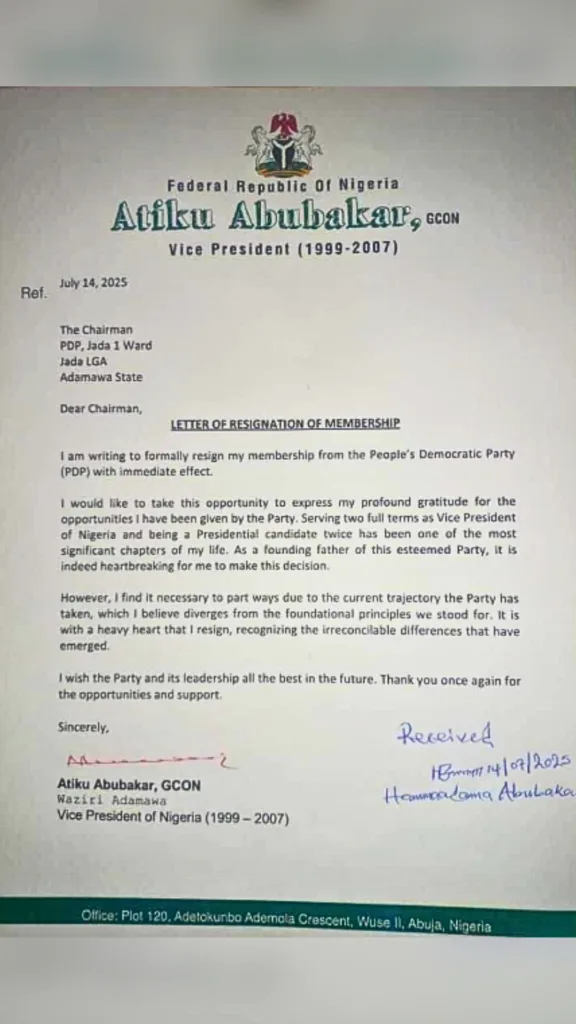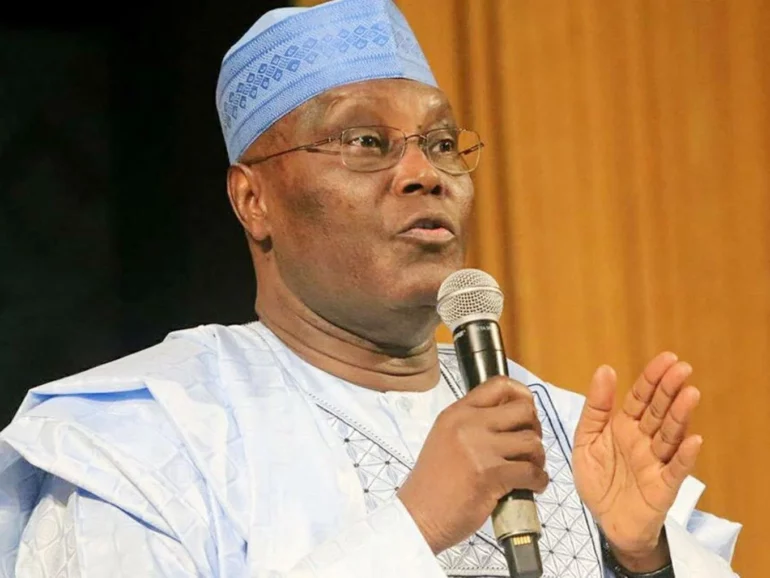Former Vice President Atiku Abubakar has resigned his membership of the People’s Democratic Party (PDP), citing irreconcilable differences with the party’s current direction.
In a letter dated July 14, 2025, and addressed to the PDP Chairman of Jada 1 Ward, Jada LGA, Adamawa State, Atiku expressed his disillusionment with the party’s trajectory, which he said no longer aligns with the founding principles he helped establish.
“I find it necessary to part ways due to the current trajectory the Party has taken, which I believe diverges from the foundational principles we stood for,” Atiku wrote. “It is with a heavy heart that I resign, recognizing the irreconcilable differences that have emerged.”
He also expressed gratitude for the opportunities he had within the PDP, including serving as Nigeria’s Vice President from 1999 to 2007 under President Olusegun Obasanjo, and representing the party as its presidential candidate in the 2019 and 2023 elections—both of which he lost, to Muhammadu Buhari and Bola Tinubu, respectively.
A history of political realignments
This marks yet another exit from the PDP for Atiku, who has a history of switching political affiliations in pursuit of his presidential ambition.
After his tenure as Vice President, Atiku left the PDP in 2006 to join the Action Congress of Nigeria (ACN), contesting in the 2007 presidential election, where he came third. He later returned to the PDP ahead of the 2011 elections but lost the presidential primary to Goodluck Jonathan.
In 2014, he joined forces with other PDP defectors—including Bukola Saraki and Rotimi Amaechi—to form the All Progressives Congress (APC). Though he lost the APC ticket to Buhari, he supported the party’s 2015 victory. Atiku returned to the PDP in 2017 and secured the party’s presidential nomination for both the 2019 and 2023 elections.
His fallout with FCT Minister Nyesom Wike during the 2022 PDP presidential primaries is widely seen as a key factor in the internal crisis that has rocked the party since.

Eyes on 2027: Coalition politics
Atiku’s latest resignation is believed to be linked to preparations for the 2027 general elections. He has reportedly joined forces with other key political figures—including Peter Obi (Labour Party’s 2023 presidential candidate), Rotimi Amaechi, and Nasir El-Rufai—to form a broad opposition coalition.
On July 2, the coalition adopted the African Democratic Congress (ADC) as its platform to challenge the ruling All Progressives Congress (APC) in 2027. Former Senate President David Mark, who also recently resigned from the PDP, has been named the coalition’s interim national chairman, while Rauf Aregbesola, former Osun State governor, was appointed interim national secretary.
Atiku’s departure from the PDP for the third time underscores his persistent pursuit of the presidency and his willingness to shift alliances to achieve that goal. Whether this latest move finally delivers the presidency in 2027 remains to be seen.


